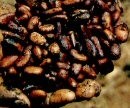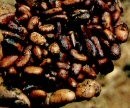Cargill looks to tackle child labour in cocoa growing
The cocoa and chocolate ingredients supplier announced that it is collaborating with non-governmental organisation, CARE, on a new programme of activities including improving access to education and basic services, as well as the promotion of best practice crop management.
Cargill claims that its support for the NGO programme, in addition to the work it is doing through its own farmer field schools, will boost the livelihoods of cocoa growing families and reduce the pressure on family finances, and in turn the reliance on child labour.
“The programme will also improve educational opportunities for at least 60,000 children,” said Jos de Loor, managing director of Cargill’s cocoa and chocolate business, who added that education is focus for Cargill as it breaks the chain to poverty.
The farmer field school programme focuses on farming techniques and post-harvest activities such as pruning, farm renewal and cocoa fermentation methods, as well as stressing the importance of school attendance for children and HIV awareness.
The MD of Cargill’s cocoa business maintains that sustainable cocoa growing is a ‘win win’ for all parties, including the cocoa processor’s industrial customers and consumers.
He said that as a result of the training, farmers are benefitting on average from a 30 per cent increase in their incomes from higher yields.
And de Loor, speaking to this publication, stressed that through these “better price for better product initiatives like the payment of the UTZ premium to certified cooperatives, Cargill can also ensure that it is worthwhile for farmers to grow cocoa.”
The cocoa grinder is aiming to process 10,000 tonnes of certified cocoa beans by the end of 2010.






